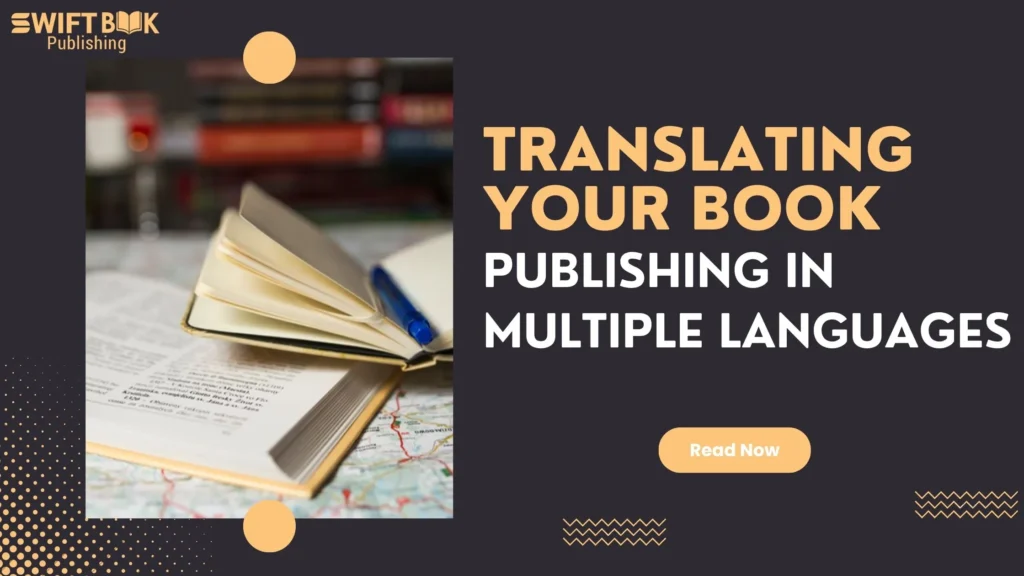So, your book’s finally out in the world. You’ve ticked off the editing, nailed the cover, and your launch went better than expected. But now what?
If your story, expertise, or message has the potential to resonate beyond English-speaking readers, then book translation publishing might just be your next move. Translating your book into other languages isn’t just about growing your readership. It’s about building a global presence, expanding your income streams, and future-proofing your work for international markets.
Let’s walk through how it works, why it matters, and how to avoid the most common pitfalls.
Why Translate Your Book?
The obvious reason? More readers. But it’s deeper than that. International markets, especially those in Europe, Asia, and Latin America, are hungry for content across genres. Romance, self-help, thrillers, children’s books, and nonfiction all see strong demand overseas.
By translating your book, you’re giving it a second life, and possibly a second wave of sales. It’s also a brilliant way to add value to your publishing career, especially if you’re looking to expand your Goodreads for authors presence or position your work for film, TV, or licensing opportunities.
Plus, if you’ve already invested in a solid book pre-orders strategy, translation helps you reuse and repurpose content without starting from scratch.
Step 1: Know Your Translation Rights
Before you even think about translating a word, get clear on who holds the translation rights. If you’re self-published, those rights belong to you. If you’re traditionally published, your contract may list them as part of the publisher’s rights package, meaning you’ll need permission or a rights reversion first.
It’s a good idea to write a query letter (or have a professional do it) if you’re looking to negotiate foreign rights with international publishers.
Step 2: Choose the Right Languages
Don’t just translate into every language and hope for the best. Do your research. For example:
- Spanish and German are top picks for fiction
- French works well for literary and memoir
- Chinese and Korean markets are growing fast, but need strong distribution
Look at sales data, genre trends, and even use reader reviews marketing to see where your book is gaining traction. If you’re already reaching international readers in English, that’s a great sign.
Step 3: Hire a Professional Translator (Not Just Google Translate)
This can’t be stressed enough: always hire a professional human translator. A machine can’t capture tone, humour, or cultural nuance, especially in genres like romance or historical fiction.
You need someone who understands not just the language but the ghostwriting ethics of adapting a voice that isn’t their own.
Bonus points if your translator is familiar with your genre’s expectations in their country, think book typography tips, tone, and length. Platforms like Reedsy or specialised translation agencies are a good place to start.
Step 4: Edit, Proof, and Prepare Your Manuscript
Once your book’s been translated, it still needs professional editing. Ideally, this includes:
- Copy editing vs proofreading (in the target language)
- Format checks to match local standards
- Consistency in tone and terminology
This is also the time to prepare a manuscript for an audiobook, if you’re thinking of recording a translated version. And yes, narration will need to be in the new language too, so keep that in mind if you’re planning an international book promotional video or trailer.
Step 5: Update Metadata and Covers
New language = new book metadata. Your keywords, categories, and book blurb must all be rewritten for the new audience. This is where many authors mess up. Keeping their English metadata means your book won’t show up in search on local platforms.
Also, consider whether your original cover still works. Some cultural tweaks might be needed, pricing self-published book content in different currencies, for instance, or adjusting layouts depending on where it’s being sold.
Step 6: Pick the Right Publishing Platform
If you’re distributing via Swift, you’ll want to make sure your translated book is uploaded to the right marketplaces (Swift.de, .fr, .es, etc.). If you’re going with KDP Select vs wide distribution, remember that exclusivity on Swift may limit your global reach.
This is where having an experienced team or partner helps. Swift Book Publishing’s global network ensures your translated book gets the widest reach possible without getting tangled in the logistics.
Step 7: Promote Your Translated Book
Now that your book’s live, how do you get it noticed?
- Partner with local influencers or bloggers in your target language
- Run region-specific ads through Swift or Facebook
- Set up a virtual book launch tailored to that country or language
- Include translated content in your email marketing for authors
- Update your book media kit to include multilingual versions
If you have a strong home audience, use that as a base to build buzz abroad. Cross-promote reviews. Share international milestones. Offer giveaways. And always encourage your audience to leave reviews, regardless of the language.
Don’t Forget the Details
- Translated book promotional video? Great for reels or TikTok abroad
- Add subtitles to English video content
- If you’ve got audiobooks, explore local narration or licensing deals
- Be mindful of book translation publishing taxes or banking fees in international markets
Final Note
Book translation publishing is one of the smartest moves you can make if you’re ready to take your work global. But it’s also one of the most misunderstood.
It’s not about running your manuscript through a bot and hoping for the best. It’s about strategic choices, who translates your book, how it’s edited, where it’s published, and how it’s promoted.
Handled well, you’re not just translating a book. You’re building a brand that speaks to the world.
And if all this sounds like a lot? That’s because it is. Which is why partnering with professional support makes all the difference. Swift helps authors handle everything from translation to distribution, so your story doesn’t just travel, it lands exactly where it needs to.







